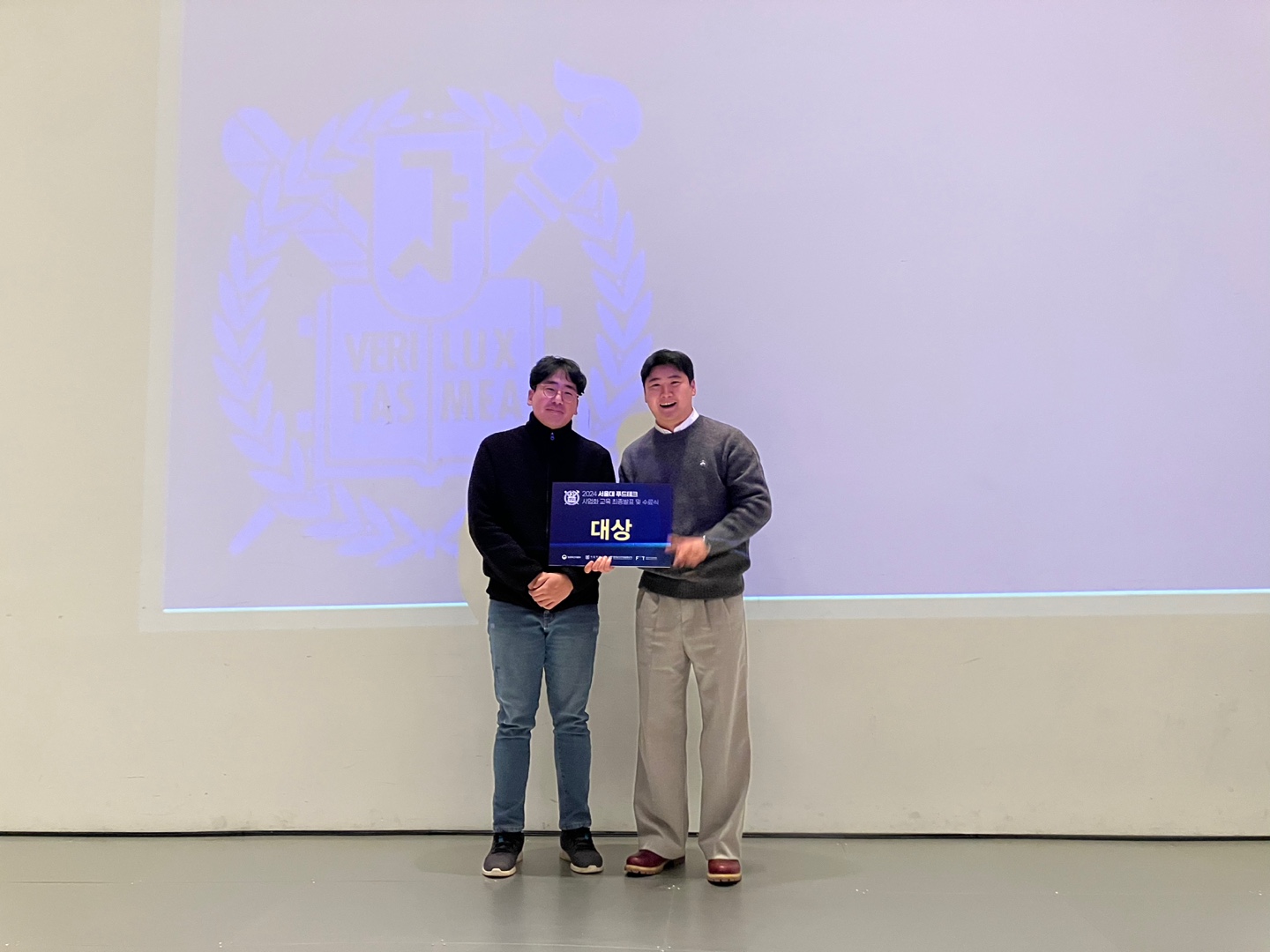Board
- HOME
- Board
- Notice
Notice
|
2024 SNU Food Tech Commercialization Education Grand Prize
관리자 │ 2024-12-16 HIT 42 |
|---|
|
The research team of Professor Hak-Jin Kim from Seoul National University, including Min-Seok Kang and Sanghyun Lee, won Grand Prize at the 2024 Seoul National University Food Tech Commercialization Education Final Presentation. Final presentation was held on November 29, 2024, at the Seoul National University Museum Auditorium. Education program was hosted by the Ministry of Agriculture, Food and Rural Affairs (MAFRA) and co-organized by Seoul National University and the Korea Agro-Fisheries & Food Trade Corporation (aT). The program aims to nurture talent in food tech and the goal is to transform promising potential research technologies held by university laboratories into not only academic but also industrial value. The program focused on practical strategies and case studies of startups. This year, it involved the participation of graduate students and researchers from a total of 10 laboratories across 5 universities — Seoul National University, Seoul National University of Science and Technology, Ewha Womans University, Korea University, and Dankook University — as well as 1 institution, Seoul National University Hospital. The research team of Professor Hak-Jin Kim received high praise for their commercialization idea, titled "Development of an Ion-Selective Electrode-Based Nutrient Solution Ion Monitoring Device and a Nutrient Balance Management Module Based on Individual Ions." This idea is based on a technology that measures the concentration of nutrients in nutrient solutions in real-time using ion-selective electrodes (ISE) in circulating hydroponic systems and applies variable-rate fertilizer injection accordingly. Notably, the team miniaturized the system by utilizing embedded boards, enhancing cost competitiveness and making it suitable for indoor cultivation systems. The technology targets the growing importance of urban agriculture and the expanding market for indoor cultivators. The team’s approach offers distinct advantages, including easier nutrient management and superior cost-efficiency compared to existing indoor cultivation systems, which contributed to winning the Grand Prize. Unlike typical programs that stop at generating commercialization ideas, this educational initiative encourages the development of practical and creative business concepts. Over the past five years, it has engaged a total of 50 research laboratories and around 150 participants, including professors, postdoctoral researchers, and graduate students. Leveraging this alumni network, the program provides opportunities for expansion in areas such as hardware, marketing, design, and technology management. This structure is expected to foster more innovative and feasible commercialization ideas in the future. |
| 이전글 | Agricultural AI Robotics and Practice Summer Camp hosted by IITD |
|---|---|
| 다음글 | Professor Hak-Jin Kim receives 27th Minister of Agriculture, Food and Rural Affa... |


